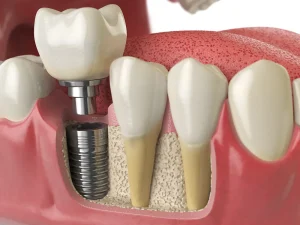The Connection Between Oral Health and Overall Health
3 min read
Your mouth can often serve as a window into the rest of your health, with studies revealing that good oral hygiene practices may reduce risk factors like heart disease and diabetes.
As with other chronic diseases, oral problems disproportionately impact populations with limited economic resources, access to healthcare and education facilities, and poor social support systems – these factors are known as the social determinants of health (SDoH).
1. Germs
There are several bacteria living in your mouth — some harmless, others causing gum disease and tooth decay. A few germs can spread through your bloodstream to other organs and tissues through “microbial dysbiosis”..
Diet and lifestyle factors affect the makeup of bacteria in your mouth, meaning the microbiome has more of an effect than scientists had imagined.
Oral bacteria may lead to inflammation and infections elsewhere in the body, including heart disease (infection of the heart chambers or valves) and pregnancy complications like low birth weight and premature birth. Oral bacteria may also infect lungs resulting in pneumonia infection that leads to more serious conditions, including clogged arteries and stroke.
2. Bacteria
Bacteria are tiny creatures, almost everywhere on the planet, and essential to its existence. Although some bacteria species are pathogenic (carrying disease), most are harmless or even healthy.
There are hundreds of species of bacteria living inside your mouth, part of your oral microbiome, some of which can cause cavities, gum disease or bad breath; others are healthy and help break down food.
Research is showing how our oral microbial communities reflect and influence human health and disease. Changes to oral microbiomes have been linked to diseases like inflammatory bowel disease, cardiovascular disease, cancers, Alzheimer’s disease4 and preterm birth5. Furthermore, diet can affect this important ecosystem within the mouth – studies have indicated certain foods improve its overall health by feeding specific bacteria found within its walls.
3. Nutrition
Research has proven the relationship between a healthy mouth and wellbeing. Gum disease, for example, puts you at greater risk of cardiovascular problems, gestational premature birth and diabetes complications.
Debilitated oral patients will consume fewer and lower quality meals because they can’t chew and swallow effectively and will become malnourished, both in their oral and overall health.
Oral diseases disproportionately afflict vulnerable and socially disadvantaged populations, and are linked with chronic systemic diseases such as diabetes, heart disease and cancer. Integrating oral healthcare services for older adults into general healthcare services is vital in order to enhance both nutritional and oral health status; this helps them live their life to its fullest. Limiting food and drinks high in sugar consumption as well as regularly brushing and flossing with fluoride paste as well as seeing their dentist are just a few simple ways to protect against dental cavities and gum disease.
4. Stress
Tooth health has an outsized influence on overall health and wellbeing than many realize. Researchers have long suggested that oral-body connections influence disease development in other key systems like cardiovascular disease, diabetes and even childhood obesity.
Psychological stress appears to play a major role in poor oral health alongside chronic diseases, but few studies directly examine this relationship. To test for potential moderators between perceived current stress and self-rated oral health outcomes, demographic and healthcare utilization data was integrated as covariates into regression models as covariates for testing purposes.
Stress has an adverse impact on our bodies in many ways, from teeth grinding (bruxism) and gum disease to canker sores. By taking steps to lower stress levels and prevent oral health issues and overall wellness concerns from manifesting themselves, taking steps such as yoga can help safeguard both.
5. Smoking
Regular dental cleanings help prevent periodontitis, which reduces inflammation that contributes to cardiovascular disease. Gum disease has also been linked with other health conditions like respiratory illnesses, osteoporosis and rheumatoid arthritis.
Smoking can be detrimental to all aspects of life and be highly addictive. Nicotine (say: ni-KOH-teen) provides temporary comfort or relief but it can quickly lead to addiction.
After World War II, smoking became associated with young rebels such as Marlon Brando and James Dean – actors portrayed as such in Marlboro Man advertisements – as well as bohemian lifestyle pleasures such as cigar smoking. Even famous writers like Kurt Vonnegut were known to smoke.





